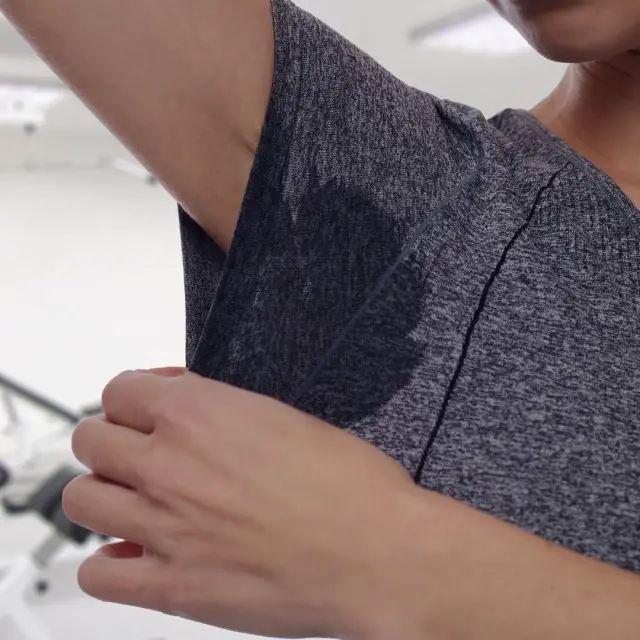Perspiration is a natural and essential bodily function that helps regulate body temperature. However, for many people, excessive sweating can be a source of discomfort and embarrassment. Whether you face excessive sweating due to hot weather, physical exercise, stress or simply for biological reasons, there are multiple strategies and tips that can help you stay cool and dry.
Understanding Perspiration: Why Do We Sweat?
Before addressing strategies to reduce perspiration, it is important to understand why we sweat. Sweating is a natural process that helps maintain body temperature in a healthy range. When the body heats up, sweat glands release sweat, which evaporates on the surface of the skin, cooling it.
There are two main types of sweat glands:
Eccrine Glands: These glands are found throughout the body and are responsible for most sweating. The sweat produced by the eccrine glands is mainly water with small amounts of salt and other electrolytes.
Apocrine Glands: These glands are located in specific areas, such as the armpits and the genital area. Sweat produced by apocrine glands contains more proteins and lipids, and can be a source of bad odor when broken down by bacteria on the skin.
Now that we've covered the basics, let's look at some practical tips to reduce sweating.
1. Choose the Right Clothes
to. Breathable Clothing
Opt for clothing made of breathable materials such as cotton, linen, and technical fabrics designed for physical activity. These materials allow air to circulate and sweat to evaporate more easily, keeping your body drier.
b. Light Colored Clothing
Light colors reflect sunlight instead of absorbing it, which helps keep you cooler. Avoid dark colors, especially black, which can increase the feeling of heat and, therefore, perspiration.
c. Loose clothing
Tight clothing can trap heat and moisture, creating an ideal environment for perspiration. Choose loose clothing that allows air to circulate around your body.
2. Use Effective Antiperspirants
to. High Effective Antiperspirants
Antiperspirants work by temporarily blocking sweat ducts, reducing the amount of sweat that reaches the surface of the skin. Look for antiperspirants that contain aluminum chloride, one of the most effective ingredients for combating excessive sweating.
b. Night App
For best results, apply antiperspirant at night. During the night, sweat glands are less active, allowing antiperspirant to be more effective in blocking sweat ducts.
3. Maintain Proper Hygiene
to. Regular Shower
Taking regular showers, especially after activities that make you sweat, can help remove sweat and bacteria from your skin. Use antibacterial soaps to reduce odor-causing bacteria.
b. Shaved off
Body hair, especially in the armpits, can trap sweat and bacteria, increasing odor. Keep sweat-prone areas clean shaven or trimmed to reduce this problem.
4. Adjust your Diet
to. Hydration
Drinking enough water can help regulate body temperature and reduce sweating. Water also helps remove toxins from the body, which can reduce the bad odor of sweat.
b. Spicy and Hot Foods
Avoid spicy and hot foods that can increase body temperature and stimulate sweating. Opt for fresher and lighter foods.
c. Caffeine and Alcohol
Caffeine and alcohol can stimulate sweat glands, leading to increased sweating. Limit the consumption of these substances to reduce perspiration.
5. Stress Management Techniques
to. Meditation and Yoga
Stress and anxiety can trigger sweating. Practicing stress management techniques like meditation and yoga can help you stay calm and reduce stress-induced sweating.
b. Deep breathing
Deep breathing techniques can help calm the nervous system and reduce sweating. Spend a few minutes each day practicing deep breathing to keep stress under control.
6. Medical Treatments and Therapies
to. Iontophoresis
Iontophoresis is a treatment that uses a mild electrical current to reduce sweating. It is especially effective for sweating hands and feet. Consult a dermatologist to determine if this treatment is right for you.
b. Botulinum Toxin (Botox) Injections
Botulinum toxin injections can block nerve signals that stimulate sweat glands, reducing sweating. This treatment is temporary and must be repeated approximately every six months.
c. Medicines
In severe cases of hyperhidrosis (excessive sweating), doctors may prescribe anticholinergic medications that reduce the activity of the sweat glands. These medications should be used under medical supervision due to possible side effects.
7. Keep the Environment Cool
to. Air Conditioning and Fans
Keep your environment cool by using air conditioning or fans. A cool environment can reduce the body's need to sweat to regulate temperature.
b. Avoid Direct Exposure to the Sun
Limit the time you spend in direct sun, especially during peak heat hours. Seek shade and wear hats and protective clothing to stay cool.
8. Natural Remedies
to. Sodium bicarbonate
Baking soda can act as a natural deodorant and absorb moisture. Mix a small amount with water and apply to sweat-prone areas.
b. Apple vinager
Apple cider vinegar can help balance the skin's pH and reduce sweating. Apply a small amount to your armpits with a cotton ball before going to bed.
c. Black Tea
Black tea contains tannins that can reduce perspiration. Apply cool, wet black tea bags to sweat-prone areas.
9. Lifestyle Adaptations
to. Maintain a Healthy Weight
Excess weight can increase sweating. Maintain a healthy weight through a balanced diet and regular exercise to reduce sweating.
b. Regular Exercise
Regular exercise can help regulate the nervous system and reduce stress-induced sweating. Additionally, staying fit can improve the body's efficiency in regulating temperature.
10. Consult a Specialist
If excessive sweating persists despite trying various methods, consult a dermatologist or hyperhidrosis specialist. They can offer more advanced and personalized treatments to address excessive sweating.
Sweating is a natural bodily function, but when it becomes a problem, it can affect quality of life. Implementing a combination of strategies, from choosing the right clothing to medical treatments, can help you stay cool and dry. Remember that every body is different, so it may be necessary to try several methods to find what works best for you. Maintaining good hygiene, adopting healthy habits, and seeking guidance from a health professional are key steps to managing sweating effectively.
